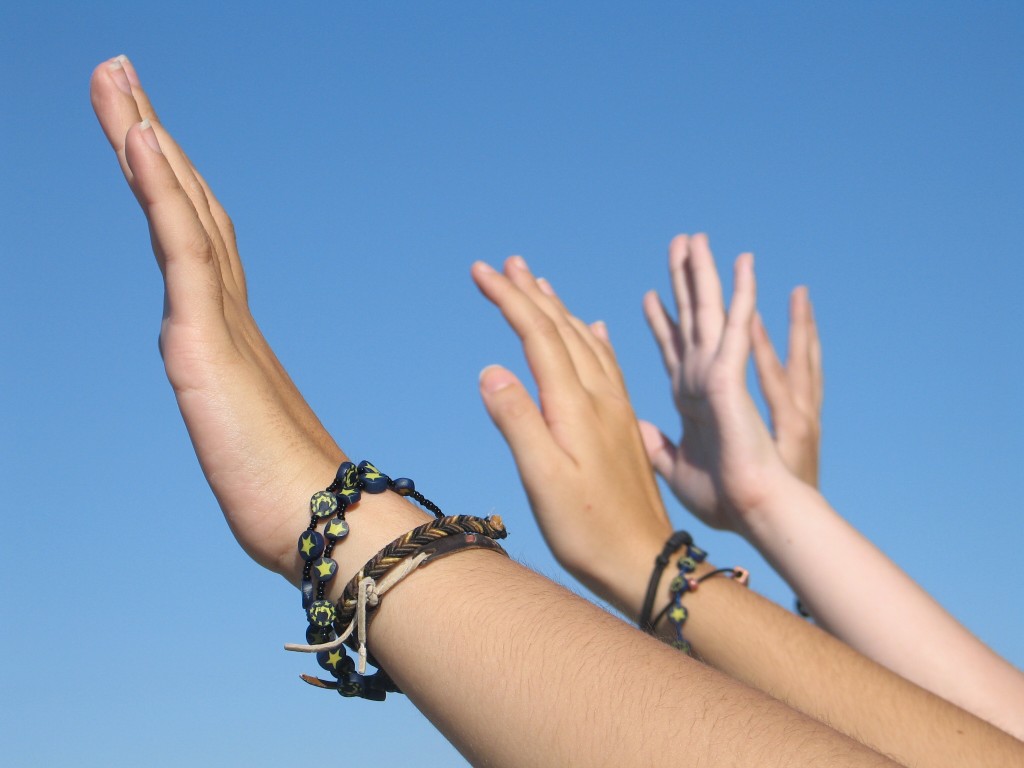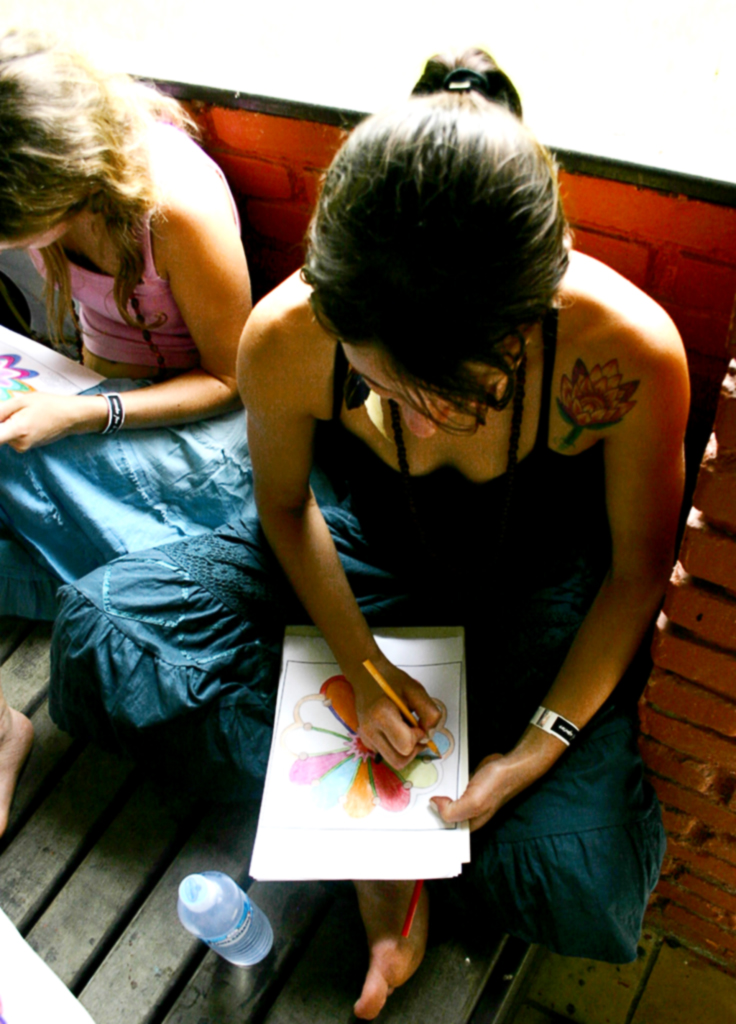
There is no single definitive solution for rebuilding one’s life as a survivor of gender-based violence because the personal journey to healing varies for each individual woman or girl. Though many have suffered these experiences, the conduit to recovery is a unique one. Every woman or girl reacts and processes her experience of violence differently; every individual heals and comes to terms with post-trauma at their own pace. In addition, the way each survivor deals with her trauma depends on the culture she is in, the community of which she is a member, and the resources to which she has access.
Although recovery is complicated, frustrating and long-term process that is always a work-in-progress, building a new life is not impossible for many survivors. In this article, we list out a number of actions and starting points that may be able to help clear a pathway to healing and make it a little easier for survivors and the network of potential supporters around them (e.g. friends, family, community) who are also often at a loss as to how to help ease their pain and be there for them on their journey. Together, both survivors and their supporters can work through the healing process and deal effectively with the traumatic experience.
We have divided our ideas/tips into a section for communities and a section for survivors themselves. These suggestions are by no means comprehensive but we hope they will not only help with kickstarting the healing process for some survivors and their supporters, but also awareness that we can all help improve upon the how individuals and communities can mitigate and work their way through after-effects of traumatic experiences such as domestic violence, rape, sexual assault, and female genital mutilation.
NOTE: This article is a companion article to last year’s article about 16 ways you can help support VAW survivors which you can read in tandem with this article to get more ideas and suggestions that you may be able to apply to your situation/community.
Written and compiled by Ashley Sapp with additional content by Regina Yau. Introduction by Ashley Sapp and Regina Yau.
______________________________________________________________________
8 Ideas/Tips for Violence Against Women (VAW) Survivors
Survivor Tip #1: Acceptance
The first building block in reclaiming your life after the violence is acceptance because acknowledging what has occurred can help start you on the road to recovery. Much like with grieving, part of being able to move forward and rebuild one’s life is to accept what has happened to you and how it has changed you and your life. This is because denial may prevent you from acknowledging where your life currently stands and how to go about healing from your wounds, especially when it comes to the complications of living with the consequences of violence. Acceptance does not mean that you are “over it” because your healing process can never be rushed and many survivors find that it is a long-term process that requires constant work but it’s a process that requires a first step. And acceptance is that first step.
Survivor Tip #2: Self-Awareness
There is nothing more important than recognising the emotions and thoughts you may be having, particularly after a traumatic event. Shielding yourself from your own mind is akin to putting up a partition that prevents you from working through your experiences and hinders the healing process. Understand that although you are not alone and others have shared this type of experience, the way you heal and behave and react can and will be unique. No one follows the same pattern, and this is okay. Also, everyone deals with this at their own pace, so whether you prefer to face it immediately or to put it away for a while until you have healed physically (if you have sustained physical injuries), it’s up to you. Just remember that it’s important to do so before your emotions and thoughts begin festering and causing you more hurt.
 Survivor Tip #3: The Power of Creativity
Survivor Tip #3: The Power of Creativity
Even if you are not the best writer or the most artistic person in the world, writing and crafts can serve as therapeutic tools after your traumatic experience. Very often, there is a feeling of loss after experiencing any sort of violence because violence is inherently destructive. Channeling your emotions and thoughts into words, art, dance, or music can be a pivotal part of working through everything that accompanies being a VAW survivor for several reasons. Firstly, creative activities may be able to help with revealing more about how you are feeling and dealing with what has occurred, and can also bring about new understanding that could be beneficial to your recovery. Secondly, creative activities may be a cathartic way for you find your voice after your traumatic experience. Thirdly, for some individuals, being able to create something using your hands and imagination may well be able to counteract the destructiveness of the violence inflicted on them by their abuser. For examples, see The Center for Women & Families.
Survivor Tip #4: Hobbies
If you are currently at a place in your recovery where you are not inclined to do creative activities, a simple activity you may want to consider undertaking is to remember the hobbies you enjoyed before the act of violence occurred. Even though you are dealing with a painful life-altering experience, it may help for you to remember some of the positive aspects of your life before the trauma. It can be easy to lose interest in hobbies and feel underwhelmed/ overwhelmed in general in the process of rebuilding yourself as a person and your life as a whole. However, if you are able to do so, being diligent about getting involved with the hobbies and activities that bring you joy (when you are ready) can be important in helping you because they can take you out of your mind for a bit into a place of happiness or, at least, comfort. In fact, if you have never had a hobby before, perhaps it is time to consider taking on one that can pique and absorb your interest effectively.
Survivor Tip #5: Use Available Resources
Sometimes it takes a long while for a survivor to reach this point, but the important thing is working towards being able to reach out and utilise all the tools and resources available around you that may be able to help you take the next step in reclaiming your life. Whether that means seeking help from family or friends, discussing what has happened with a survivors group, seeing a therapist, or calling a hotline number, feeling comfortable enough to explore your options is imperative to rebuilding. Some resources can be found on The Pixel Project’s Resources page.
Survivor Tip #6: Understand Timing
We all heal differently and within specific time frames and following our own distinctive patterns. No matter how quickly or slowly you move through the healing process, it only matters that you are moving through it at all. Comparing how you deal with your pain and how you manage your situation with how other survivors do it is unnecessary because there is no right or wrong way to go about it. Do what feels right. Do what helps you. But the main thing –the most important thing—is to take care of you. Listen to what your body and mind need and try to communicate that with both yourself and loved ones.
Survivor Tip #7: Unlearn Shame
Though hearing from others that what happened to you is not your fault can help, it is something you must learn and understand for yourself. You have no reason to feel guilty for your abuser’s/attacker’s actions because it was their choice to inflict violence on you. You have no reason to doubt that you are a survivor in every sense of the word, and though you will feel a bewildering range of emotions that come with being a survivor, shame should not be one of them. It is possible to unlearn shame as long as you continue to remind yourself of the truth: you are not to blame for what happened to you. Place post-its and reminders of this on your wall or your mirror until it sinks in. Another crucial step you can take in unlearning shame is to put distance between yourself and the people in your life and your community who insisting on blaming the victim (you) for what has happened to you. This is a difficult action to take as victim-blamers may include your family and friends but it is important to identify those who will recognise that it is not your fault and who will focus on helping you heal instead of making you doubt yourself.
Survivor Tip #8: Network, Network, Network
While your healing process and experience is unique to you, it is something that others are working through too. Joining a network of victims and survivors of traumatic events such as assault, rape, domestic violence, and female genital mutilation can help break down the barriers of feeling alone or unequipped to handle recovery. These are your peers who understand at least part of the emotional terrain that you are navigating and those who are further down the line in their own healing may have some helpful advice that you could apply to your own situation. Plus, sharing your own insight and tips with other survivors could help you heal as well. You can find support groups locally or online, in places like Trauma Survivors Network.
8 Ideas/Tips For Communities, Families, and Friends of Violence Against Women (VAW) Survivors.

Supporter Tip #1: Listen And Believe
When a survivor of any sort of gender-based violence or harassment—domestic violence, rape, female genital mutilation, and so on—reaches out to talk about her experience, she is not necessarily seeking advice. Instead, she is looking for a safe environment and people who will actively listen to her in a non-judgemental way. Survivors need to be heard and assured that their experience is important, instead of having their trauma explained away, blamed for what happened to them, or have decisions about their future made on their behalf without their consent. Nothing can change what has already occurred to the survivor, but having a trustworthy, stable, and accepting community of supporters (friends, family, helplines like RAINN) who believes her and does not blame her will do wonders for her recovery. Another advantage of making the commitment to listen to the survivor is that you will be better able to find out directly from her what she needs and what you can do to help alleviate her pain.
Supporter Tip #2: Support In Appropriate Ways
For many VAW survivors, the healing process is a difficult one and what often brings the healing process to a halt is feeling too alone and isolated by the surrounding community to continue. As you listen to a survivor detail their feelings, thoughts, and experiences, it is important to remain supportive and to show that support in ways that the survivor is comfortable with. A few first steps you can take include: being reassuring, offering assistance when she needs or asks for assistance, doing research on healing resources for both you as a supporter and her as a survivor. Sometimes what is needed most by those who are recovering is simply knowing someone else will be there to help them and walk with them through this journey of rebuilding. At the same time, amplify your public support for the survivor (and all survivors in your community) by challenging the attitudes of those around you who stigmatise the survivor. For example, if you hear someone shaming the survivor (or gossiping unkindly about them), speak up to call out that person’s behaviour.
Supporter Tip #3: Do Your Research
Something that can help in any situation is to be well-informed, particularly when it comes to helping a VAW survivor in appropriate ways. One of the key steps to understanding the issues these survivors are facing as they progress toward healing (including: anxiety, depression, and post-traumatic stress disorder) is to do your research – go online to educate yourself about them and what you can do to help the survivor. Although every survivor’s experience is unique, there are stages, symptoms, and signs of post-trauma recovery that the majority of survivors go through which you can learn to recognise in order to provide timely help. Once you are familiar with all this, you will be in a better place to take action to help Here’s a quick starting point: Check out The Pixel Project’s VAW Facts section to learn about the different types of violence against women, then go to our “Getting Help” section to get checklists and tips for helping survivors.
Supporter Tip #4: Help Build Resources
Whether or not you are a survivor yourself, the issue of violence against women is faced by many; therefore, resources are invaluable in every community. If there are limited or no shelters, helplines, and funds nearby to assist survivors where you live, one place to start is with your employer or community center. Still no luck? Then start looking for ways to build resources in your community by raising awareness about VAW via flyers, community fundraisers, and networking with others who are willing to help create more resources and cognizance locally. This can begin a movement in your community to ensure survivors have a safe environment to recover in while addressing victim-blaming and rape culture to effect wider social change.
Supporter Tip #5: Therapy Helps
Therapy can be beneficial part of the rebuilding process for survivors of rape, incest, domestic violence, and other forms of gender violence as it provides an additional level of help for healing on both an emotional and psychological level. However, therapy is not just for survivors – it can also be helpful for friends and family who are actively involved in helping the survivor. The right therapist can assist in better enabling you to be an effective supporter as someone equipped to help your loved one through this experience. There are sessions for you individually and that you can attend together with the survivor or as a group: utilise them. If private therapy is too expensive, find out if there are support groups or anti-VAW organisations nearby who may be able to help locate affordable therapy and counselling/guidance services for both survivors and the families/communities of the survivors.
Supporter Tip #6: Avoid Being Overbearing
While it is important to remain caring and supportive, there is a difference between doing so and being overbearing. Remember to respect the survivor’s needs. Do not push for more details when she is not ready nor should you try to “fix” problems or force her to talk beyond what she is comfortable discussing. Silence is not a bad thing and can in fact say quite a bit. Being there for a survivor means allowing her to be and to not pretend everything is okay. When in doubt, ask the survivor about what she needs and how she would like you to help her. If she asks for some space or insists on accomplishing a task on her own steam, respect her decision to do so as this is part of her journey towards regaining her self-confidence and self-respect after the violence.
Supporter Tip #7: Be Attentive to Flashbacks or Panic Attacks
Flashbacks and panic attacks can be fairly common in VAW survivors, and responding to them in a compassionate and appropriate manner will go a long way towards helping the survivor manage and recover from these episodes. Help the survivor to breathe properly, let them know you realise this feels real to them, but remind them that it is not are all key actions to take. Describe her surroundings and have her do the same, turn off any triggering music/television, and bring the focus back to the moment. Remind the survivor there is nothing wrong with undergoing flashbacks or attacks, as they are an opportunity to understand and to work through her experiences. If the flashback or panic attack is very severe, call for appropriate medical or professional assistance.
Supporter Tip #8: Recognise The Importance of Self-Care
Finally: Friends and family of survivors of violence often experience their own feelings of guilt, shame, or loss of intimacy because they were unable to help the survivor when the violence was inflicted on her or feel helpless when faced with the survivor’s suffering. Chances are that you will also be affected by this experience, so be sure to help and take care of yourself through it as well because you need to keep yourself healthy on all levels in order to continue helping the survivor for the amount of time it would take for her to heal.
![]() Survivor Storytelling Suggestion #3: Blogs
Survivor Storytelling Suggestion #3: Blogs![]() Survivor Storytelling Suggestion #9: Magazine Articles
Survivor Storytelling Suggestion #9: Magazine Articles